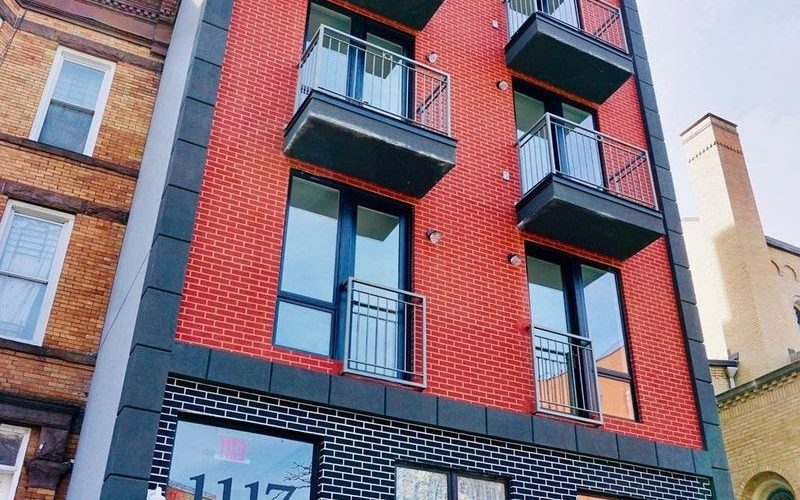A condo questionnaire is a form sent to a condo development by a lender when a potential borrower applies for a mortgage.
The questionnaire allows the lender to determine if the condo meets its requirements for a loan. If the requirements are met, the lender can in turn consider providing a loan to the condo buyer.
Someone associated with the condo fills out the questionnaire. This is often the condo building’s managing agent. The borrower cannot fill it out directly.
The content of a condo questionnaire is established by government agencies, but a lender may also have their own version for loans that will be held on a lender’s books and not sold to the government.
Here is the standard preamble to a condo questionnaire from Fannie Mae:
“This form has been sent to you on behalf of an individual seeking mortgage financing to purchase or refinance a unit in this project. The mortgage lender needs this information to determine the eligibility of the project for mortgage financing purposes. Complete and return this form by (enter date) to the lender listed below. Questions about this form should be directed to the lender contact.”
What is in a condo questionnaire?
A condo questionnaire asks about:
- Basic project information: facts such as the project’s legal name and details about the homeowner association. The questionnaire also asks whether the building contains features and constraints such as supportive care for seniors and resale or deed restrictions
- Project completion: project status concerns such as whether the project is 100% complete and how many of the units have been sold and closed.
- Newly converted or rehabilitated projects: optional section applicable if the project was converted into a condo from a previous apartment building, hotel, or office
- Finances: whether the mortgagee has to cover unpaid common expenses and if the HOA is facing ongoing litigation, etc.
- Ownership: non-residential condo use and whether any condo residents own multiple units
- Insurance and financial controls: liabilities and HOA finance protections. For example, the bank wants to know if the building is in a flood zone and if “appropriate access controls are in place” for each HOA account
Check out the sample questionnaire at the bottom of this post for the full slate of condo questionnaire contents.
Check out Marketproof New Development for the most information anywhere on NYC condos.
Why does the condo questionnaire matter for NYC condo buyers?
In many cases, condo sales teams will work with a few banks, or lenders. Therefore, it is possible, even likely, that when you ask for a loan, your bank will have an existing relationship with the condo’s sales team. In this case, your bank may already have received a questionnaire from the condo you are buying in. If your bank is new to the condo building or hasn’t recently made a loan in that building, the bank will send a questionnaire for completion or updating.
The bottom line: A condo questionairre is an important document, but it’s the condo developer’s responsibility to get it signed, not yours. That said, you will need the questionnaire approved to be able to move forward.
How much do condo questionnaires cost in NYC?
The fee for a condo questionaire is generally about $250-300. The prospective borrower typically pays the fee.
When are long-form and short-form questionnaires used?
Freddie Mac suggests lenders use either without appearing to distinguish between them. As you’ll see in the sample forms below, the long form asks some additional questions about project completion, finances, and ownership of condo units.
The full form also includes an extra section on newly converted or rehabilitated projects. This asks if the project was converted into a condo from a previous apartment building, hotel, or office. If the lender suspects this may be the case, they will want to send the full form to get details about the conversion.
Why might a condo fail the questionnaire test?
A number of condo features can lead Fannie Mae or Freddie Mac not to back your loan. This will discourage lenders from doing business with you. The non-exhaustive list of no-go condo features for Fannie Mae & co. includes:
- The condo building project is not 100% complete
- The property is also a hotel
- The property is an investment security
How to find condos that meet all your requirements
Marketproof New Development provides the most comprehensive information anywhere on new NYC condos. It even shows you finished condos available for sale that developers are not publicizing, aka shadow inventory.
But even more essential for the NYC condo questionnaire, Marketproof gives you the inside scoop on condo buildings. It tells you about the sale prices of other units in the building and how many have been sold. It also tells you how many are listed, under contract, and available but not listed.
All this information, unavailable anywhere else at this scale, will help you make the right condo purchase.
Marketproof New Development
By using Marketproof New Development, you will be able to search both publicly listed properties and unlisted off-market properties not available on popular listing sites. Marketproof can increase the inventory you see by 9-10x what you may see on other sites.
Create an account, and get a seven-day free trial.
Marketproof New Development
Sample condo questionnaires
Condo-questionnaire-exampleLink to the short-form condo questionnaire shown above:
https://blocksandlots.com/wp-content/uploads/2020/11/Condo-questionnaire-example.pdf
Link to the long-form condo questionnaire shown above: https://blocksandlots.com/wp-content/uploads/2020/12/Full-form-condo-questionnaire-Marketproof.pdf
Top photo courtesy of 1117 Hoe Avenue.



